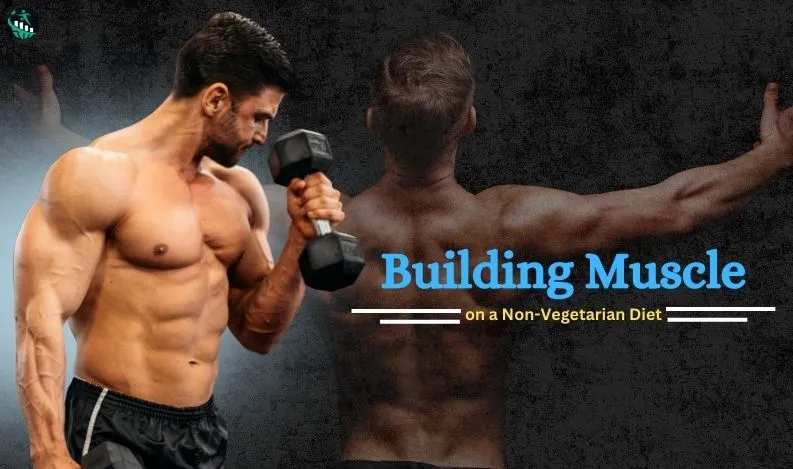
The Ultimate Guide to Building Muscle on a Non-Vegetarian Diet
The pursuit of muscle gain is often associated with a protein-rich diet, heavily featuring animal products. This guide is crafted for those who include meat in their diet and seek to optimize their muscle-building potential. We'll navigate through the myths, provide science-backed insights, and offer practical nutritional strategies for non-vegetarians.
The Science of Muscle Growth
Muscle growth, or hypertrophy, is stimulated by effective resistance training and supported by adequate nutrition. This section will delve into how the body builds muscle and the critical role nutrition plays in supporting this process.
Protein: The Cornerstone of Muscle Building
Proteins from animal sources such as chicken, fish, eggs, and dairy are complete proteins, containing all essential amino acids necessary for muscle repair and growth. We'll explore the benefits of various animal proteins and how they fit into a muscle-building diet.
Carbohydrates: Fueling Your Workouts
Carbohydrates are crucial for providing the energy required for high-intensity workouts. This section will cover the best sources of carbohydrates for those on a non-vegetarian diet, including fruits, vegetables, and whole grains, and how they support muscle recovery and growth.
Fats: Essential for Hormonal Balance
Fats play a vital role in hormone production, including testosterone, which is crucial for muscle growth. We'll discuss the importance of incorporating healthy fats from animal and plant sources, such as fish, nuts, and oils, into your diet.
Micronutrients and Hydration
This section will emphasize the importance of vitamins and minerals such as iron, zinc, and vitamin B12, which are abundantly available in animal products. The role of hydration in muscle function and recovery will also be highlighted.
A Detailed Non-Vegetarian Muscle-Building Diet Plan
Breakfast: Egg and Avocado Toast
● 2 whole eggs, scrambled or poached
● 2 slices of whole-grain bread
● 1/2 sliced avocado
● A handful of spinach leaves
Mid-Morning Snack: Greek Yogurt with Honey and Nuts
● 1 cup of full-fat Greek yogurt
● A drizzle of honey
● A sprinkle of mixed nuts and seeds
Lunch: Grilled Chicken Salad
● 150g grilled chicken breast
● Mixed leafy greens
● Cherry tomatoes, cucumbers, and bell peppers
● Dressing: Olive oil and balsamic vinegar
Afternoon Snack: Tuna Salad on Whole-Grain Crackers
● Canned tuna mixed with a little mayonnaise and mustard
● Served on whole-grain crackers
Dinner: Salmon with Quinoa and Steamed Vegetables
● 200g grilled salmon
● 1 cup cooked quinoa
● Steamed broccoli, carrots, and asparagus
Evening Snack: Cottage Cheese with Pineapple
● 1/2 cup cottage cheese
● 1/2 cup diced pineapple
Supplementing Your Diet
While a balanced non-vegetarian diet typically provides all the necessary nutrients for muscle growth, certain supplements like omega-3 fish oils, whey protein, and creatine can offer additional benefits. This section will guide you through choosing the right supplements to complement your diet.
Overcoming Common Dietary Challenges
This section will address challenges such as managing dietary fats, ensuring the quality of animal proteins, and avoiding processed foods. Tips for meal prep, portion control, and maintaining a balanced diet will be provided.
Conclusion
Building muscle on a non-vegetarian diet offers a wide array of nutritional options. With informed choices and strategic planning, you can achieve your muscle-building goals while enjoying a varied and satisfying diet. This guide aims to empower you with the knowledge and practical tips needed to navigate your muscle-building journey as a non-vegetarian.
Also Read:-



Recent Comments: